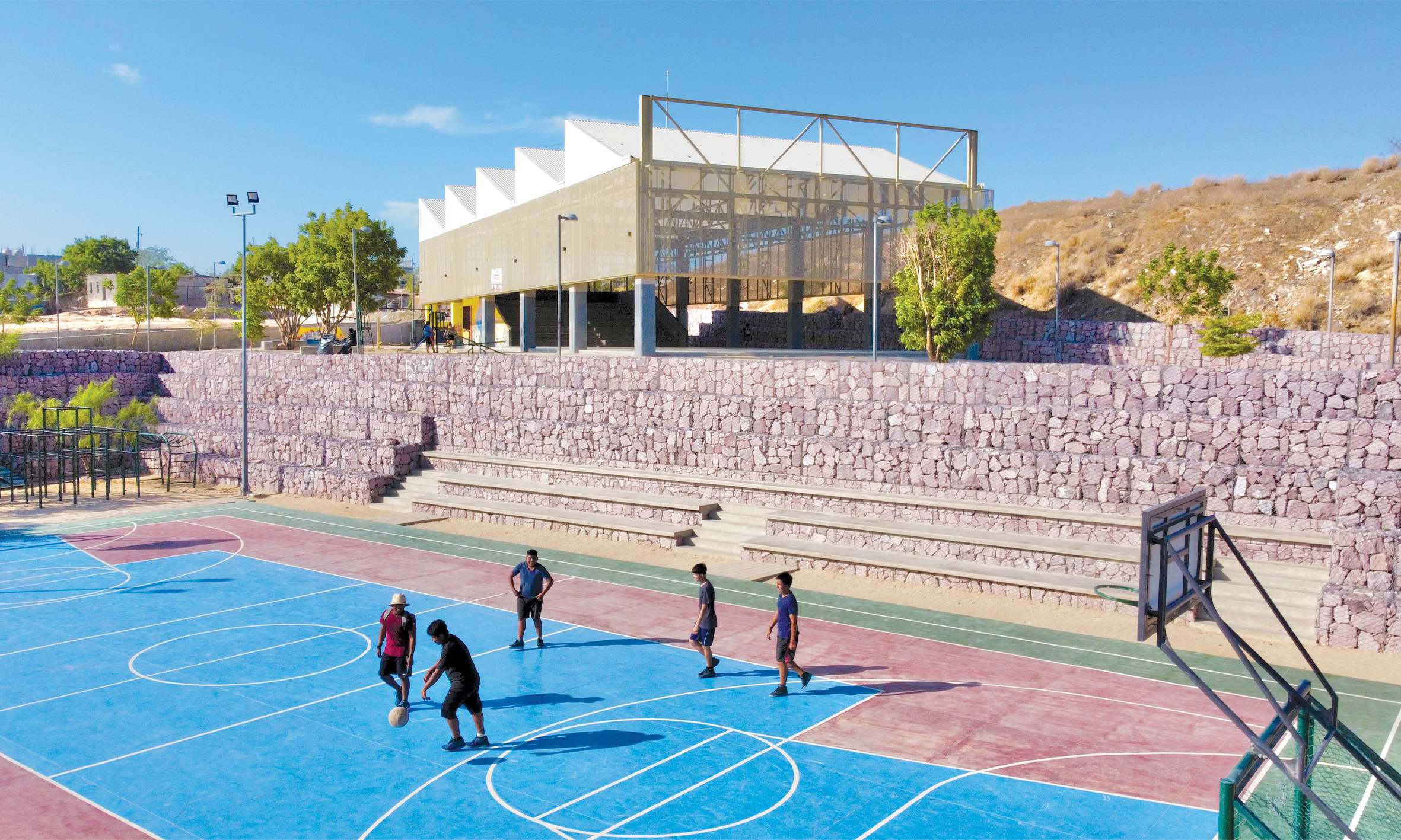
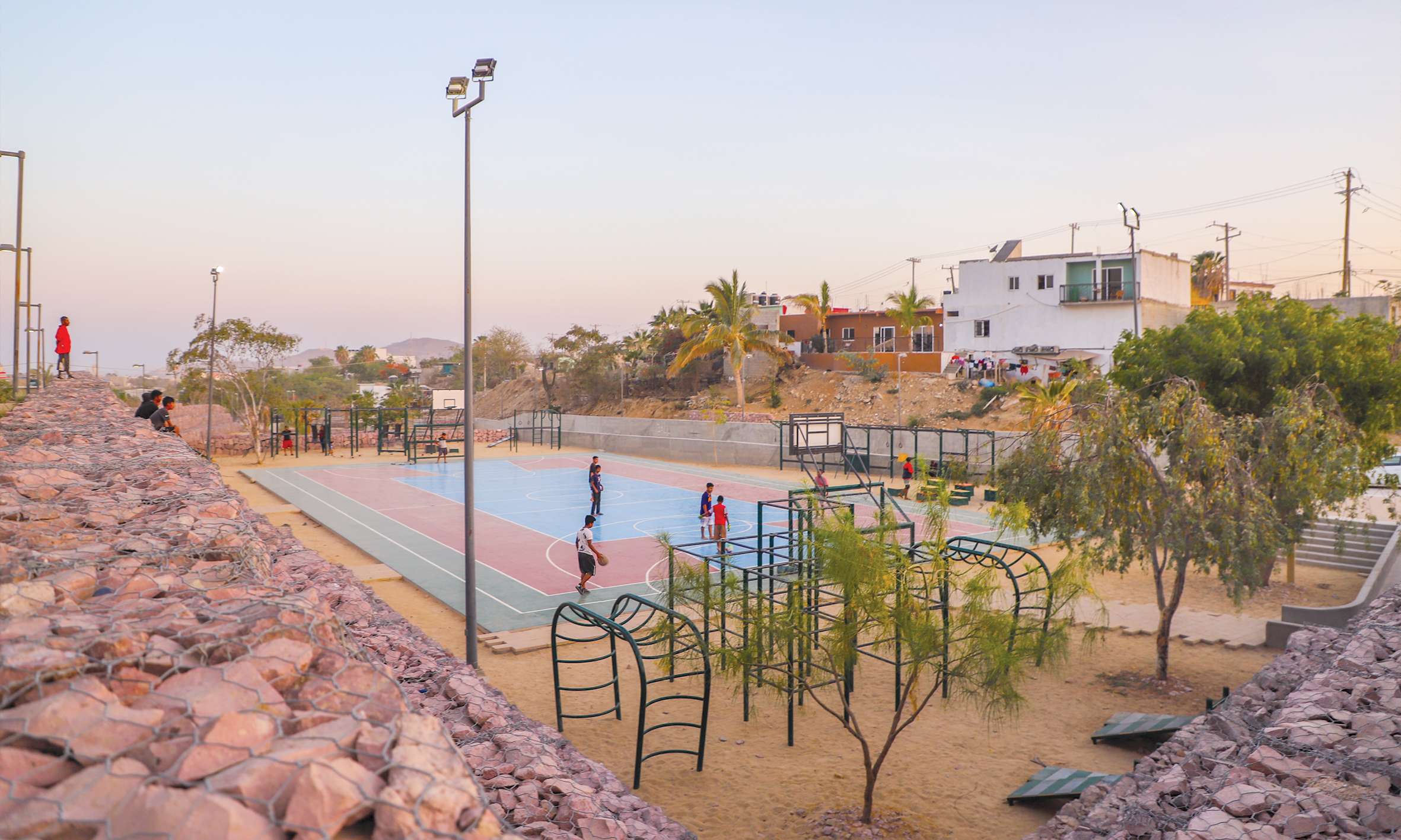
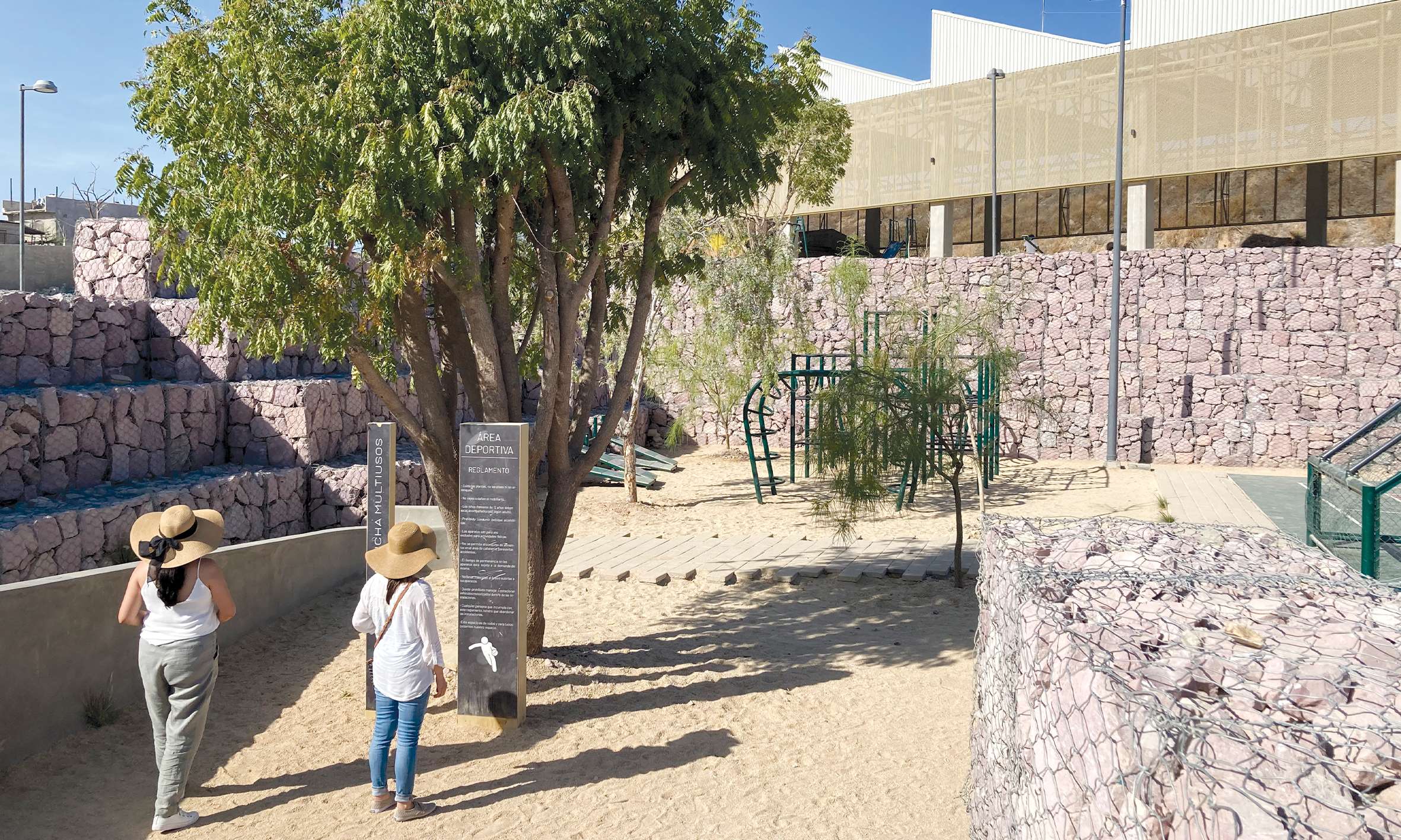
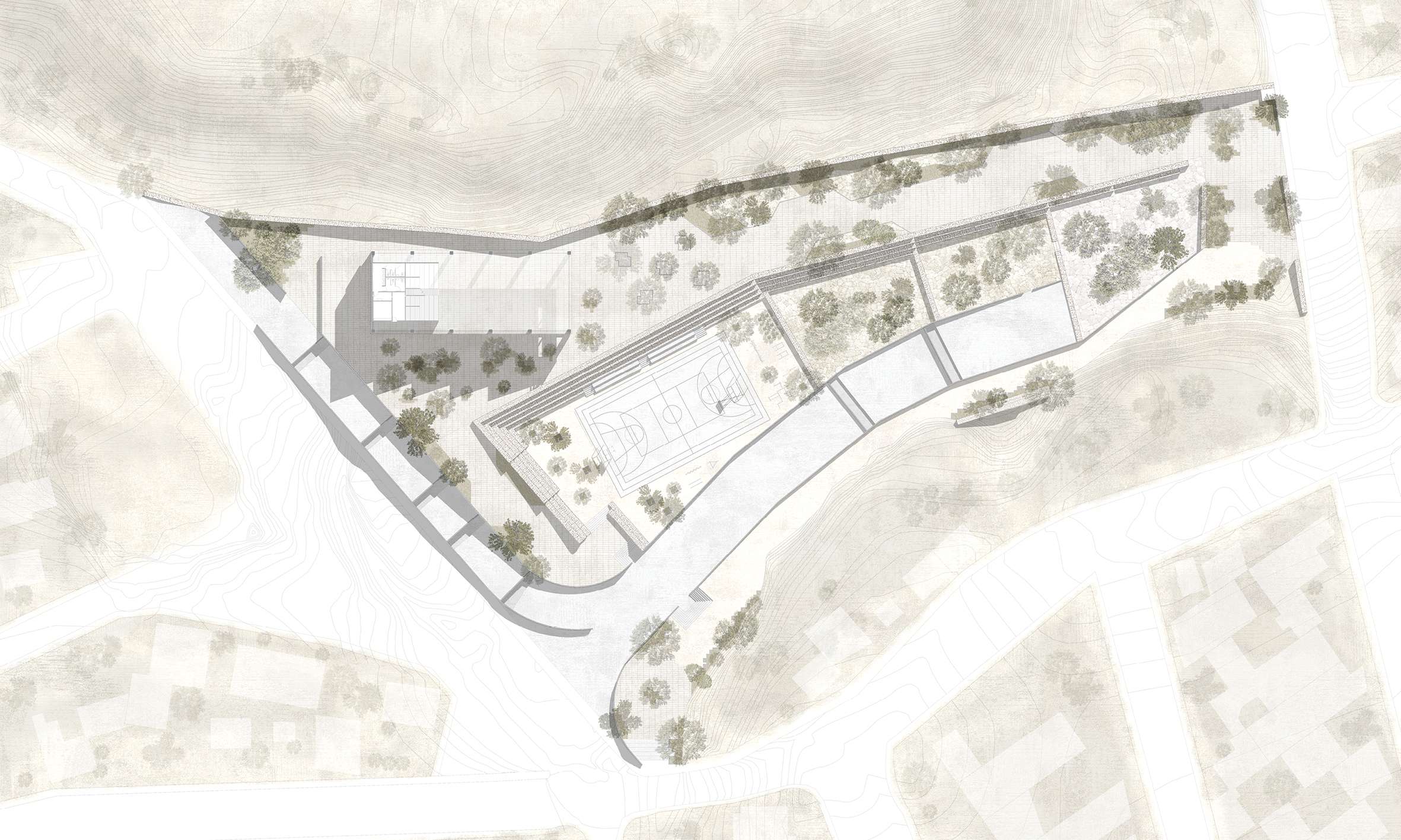
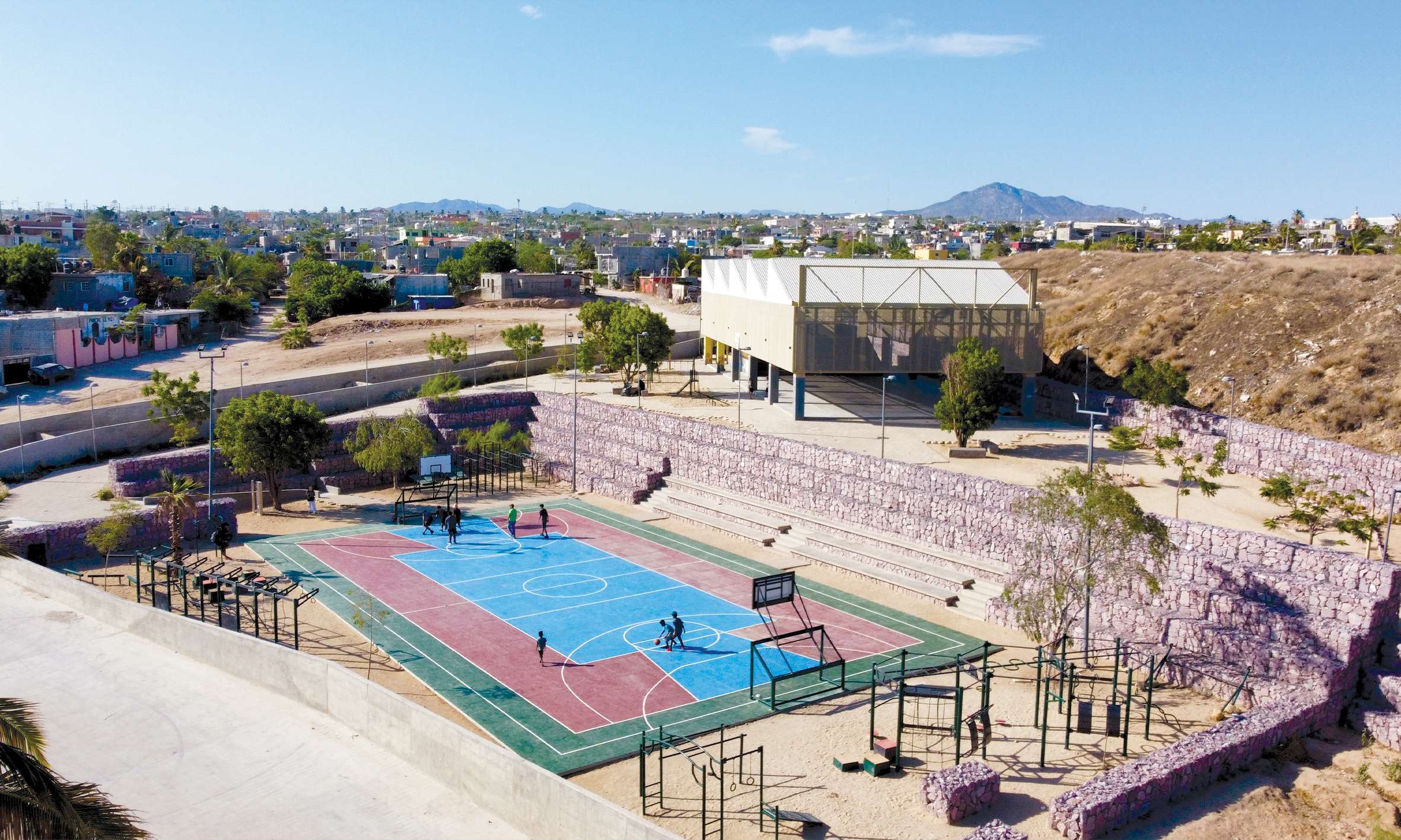
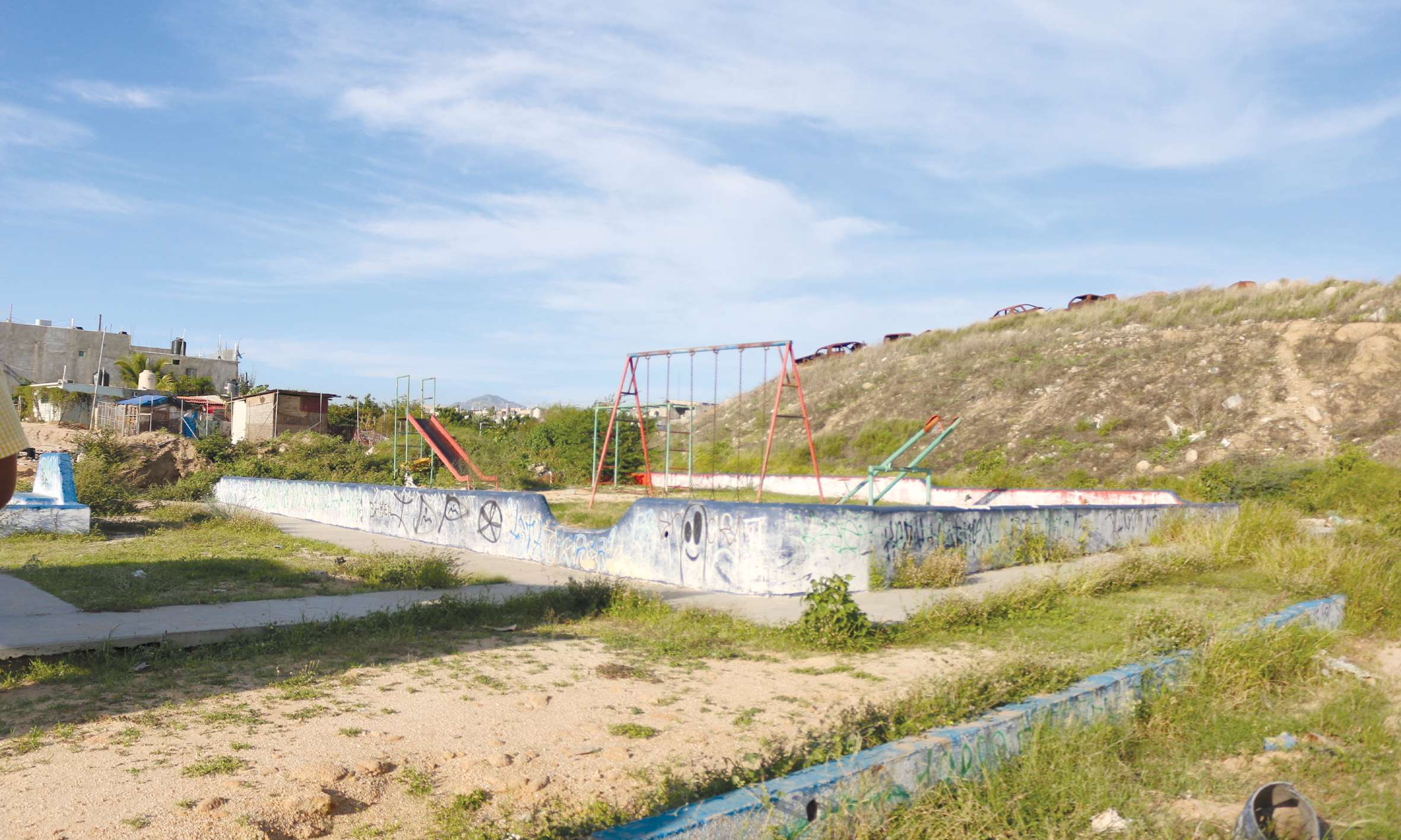
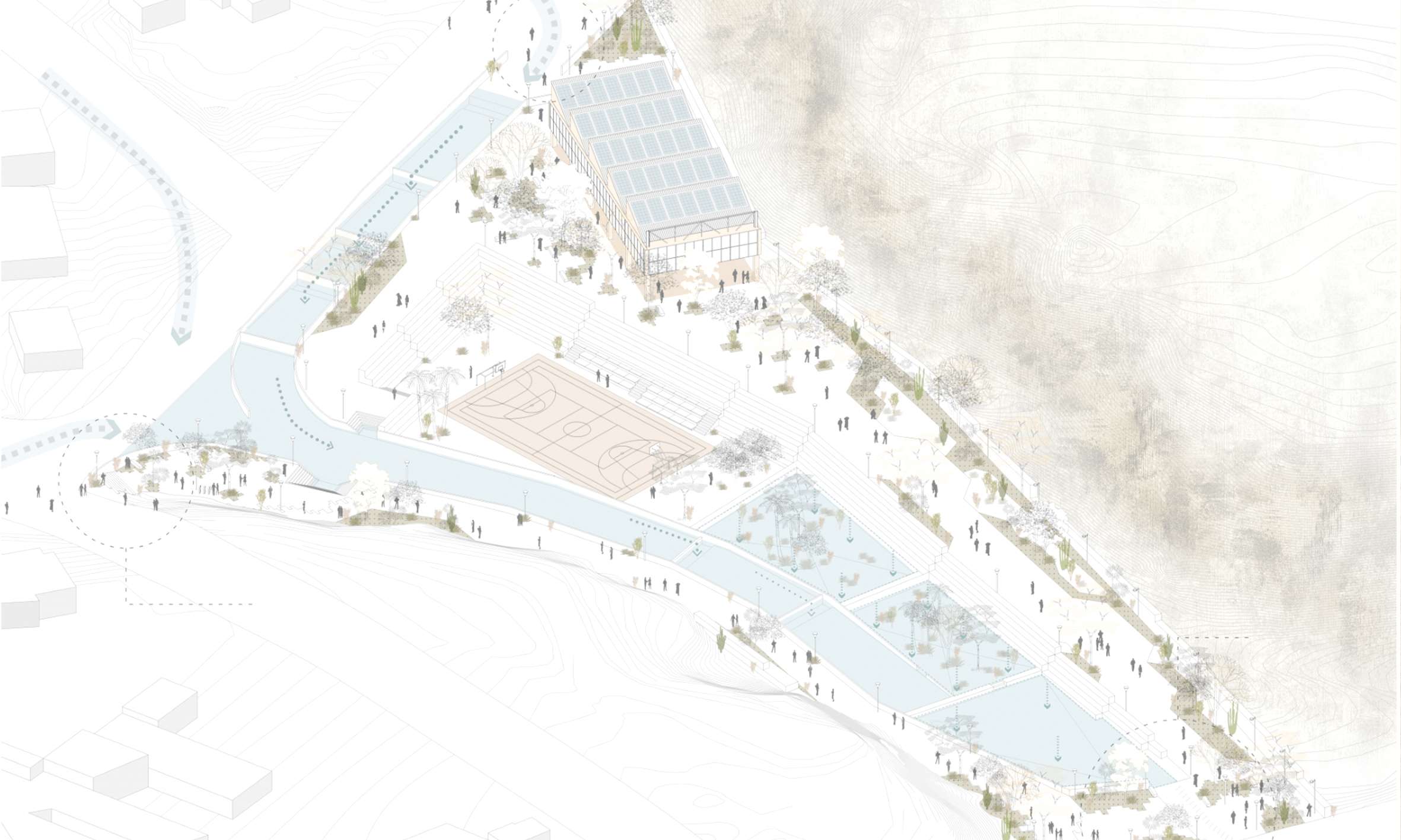
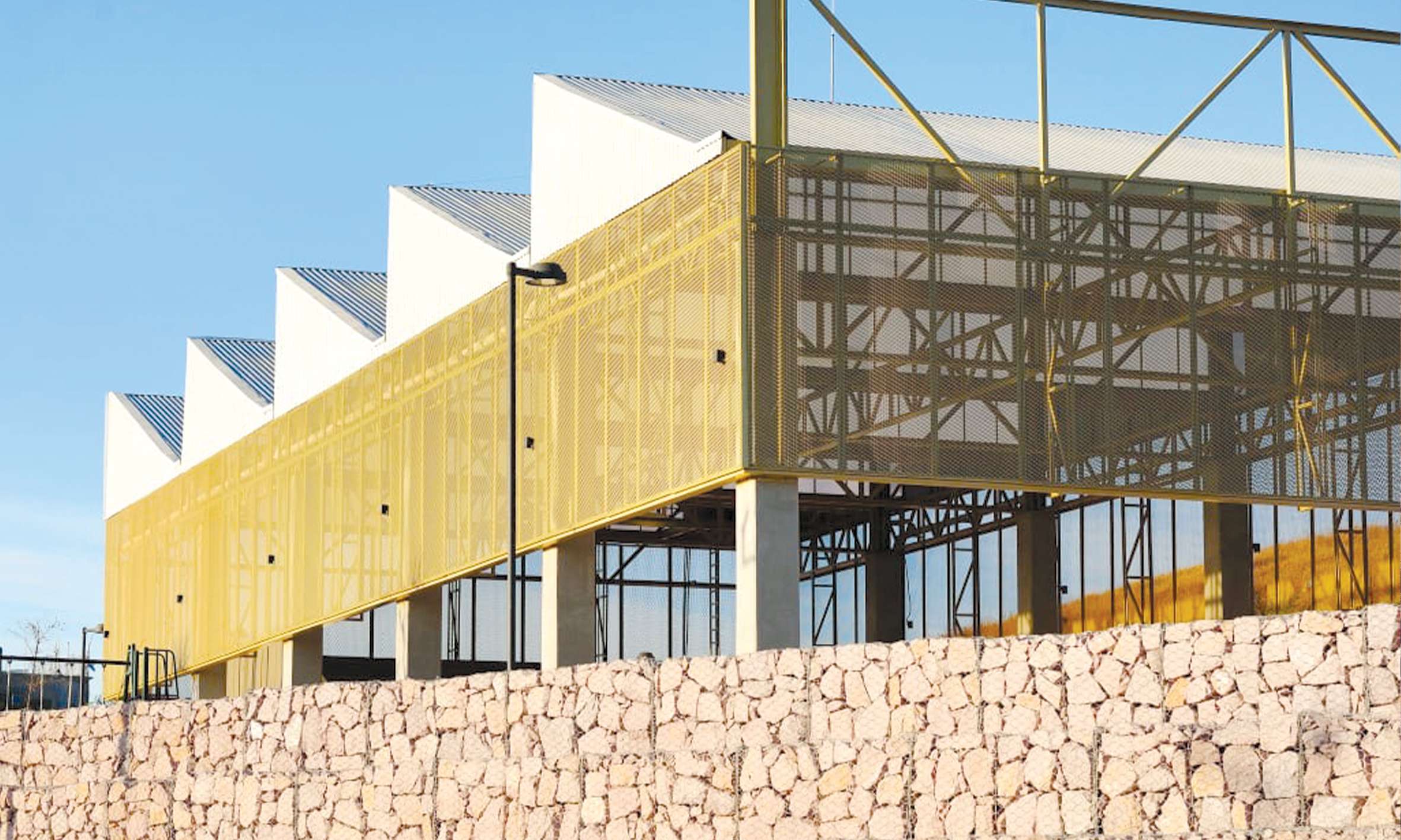
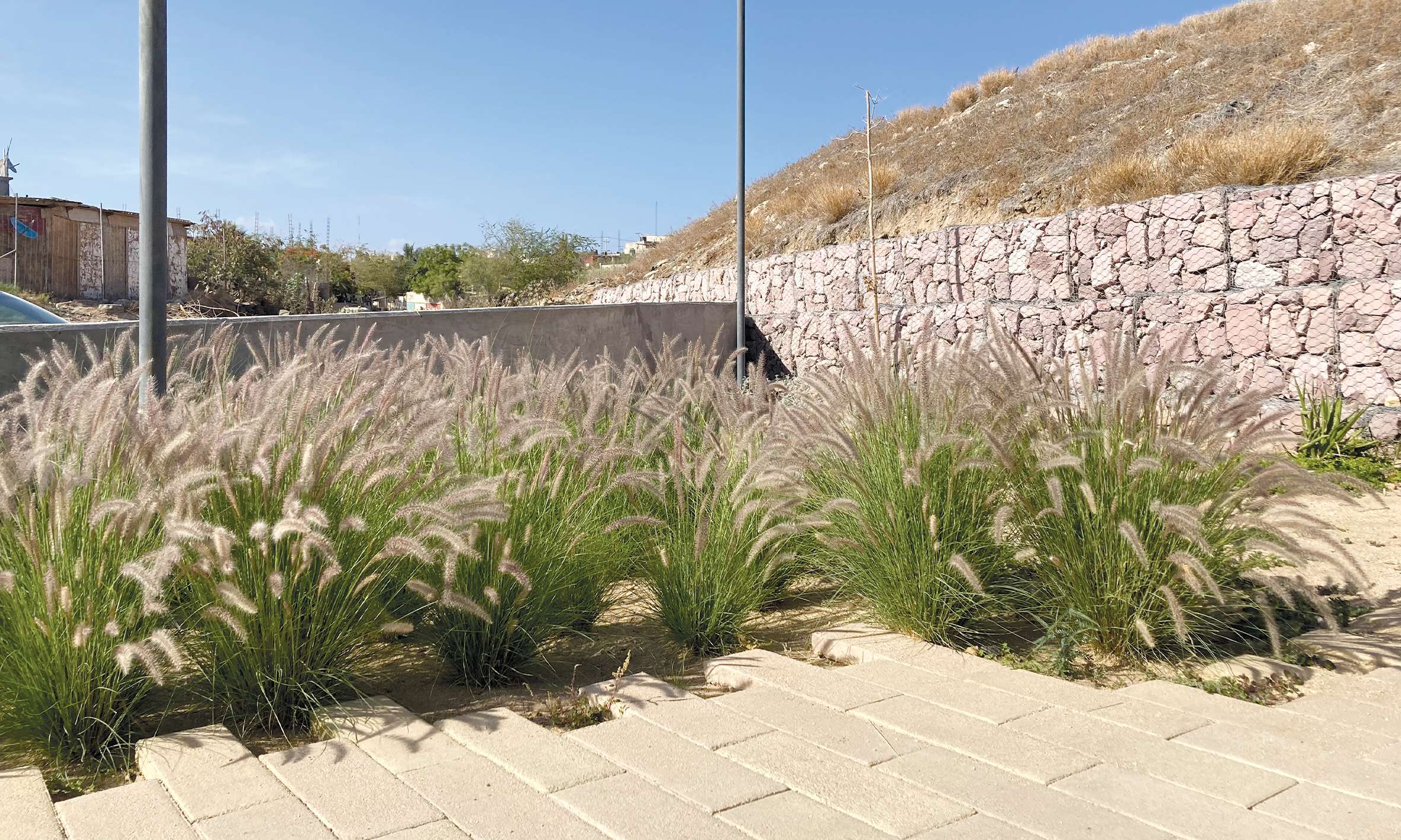
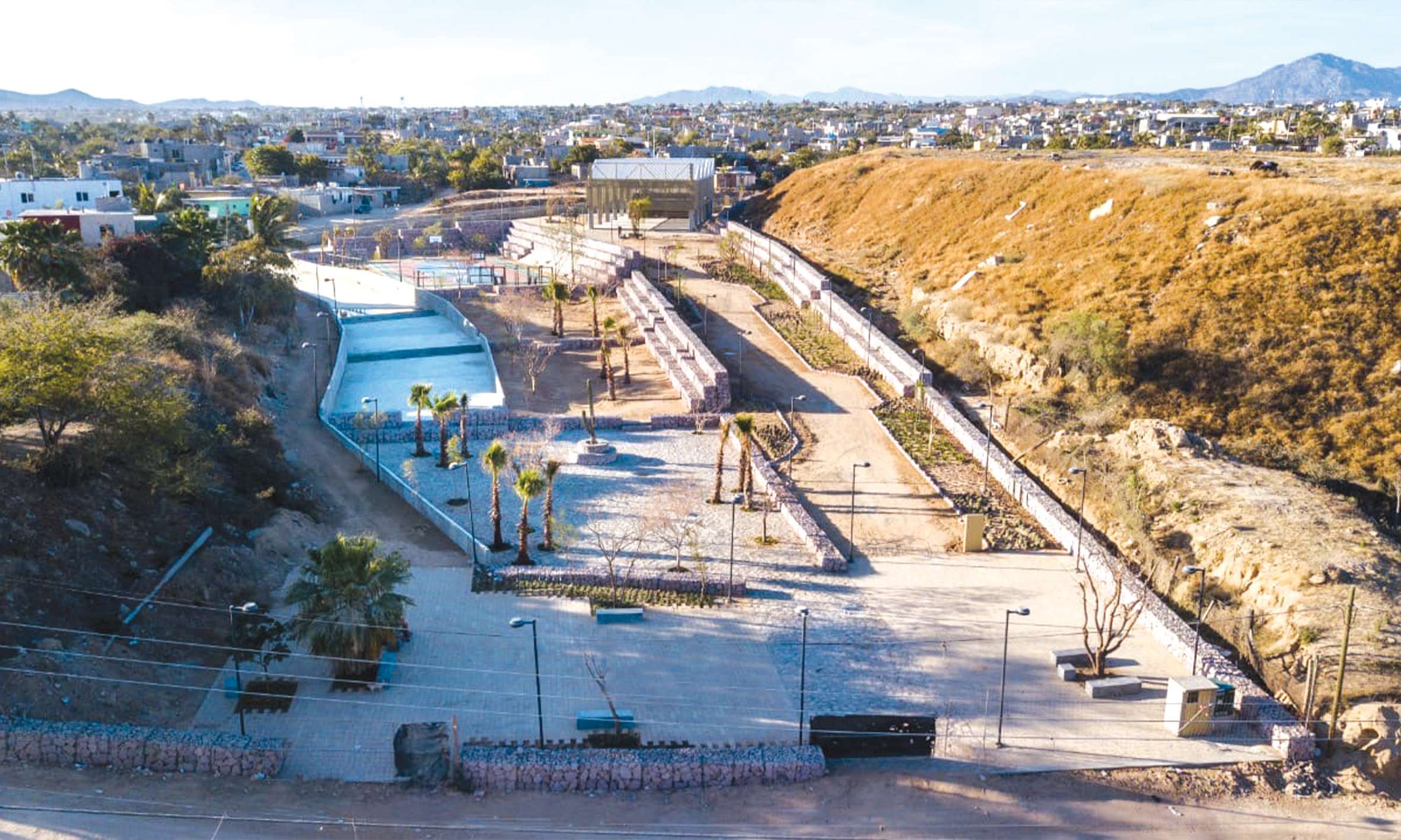
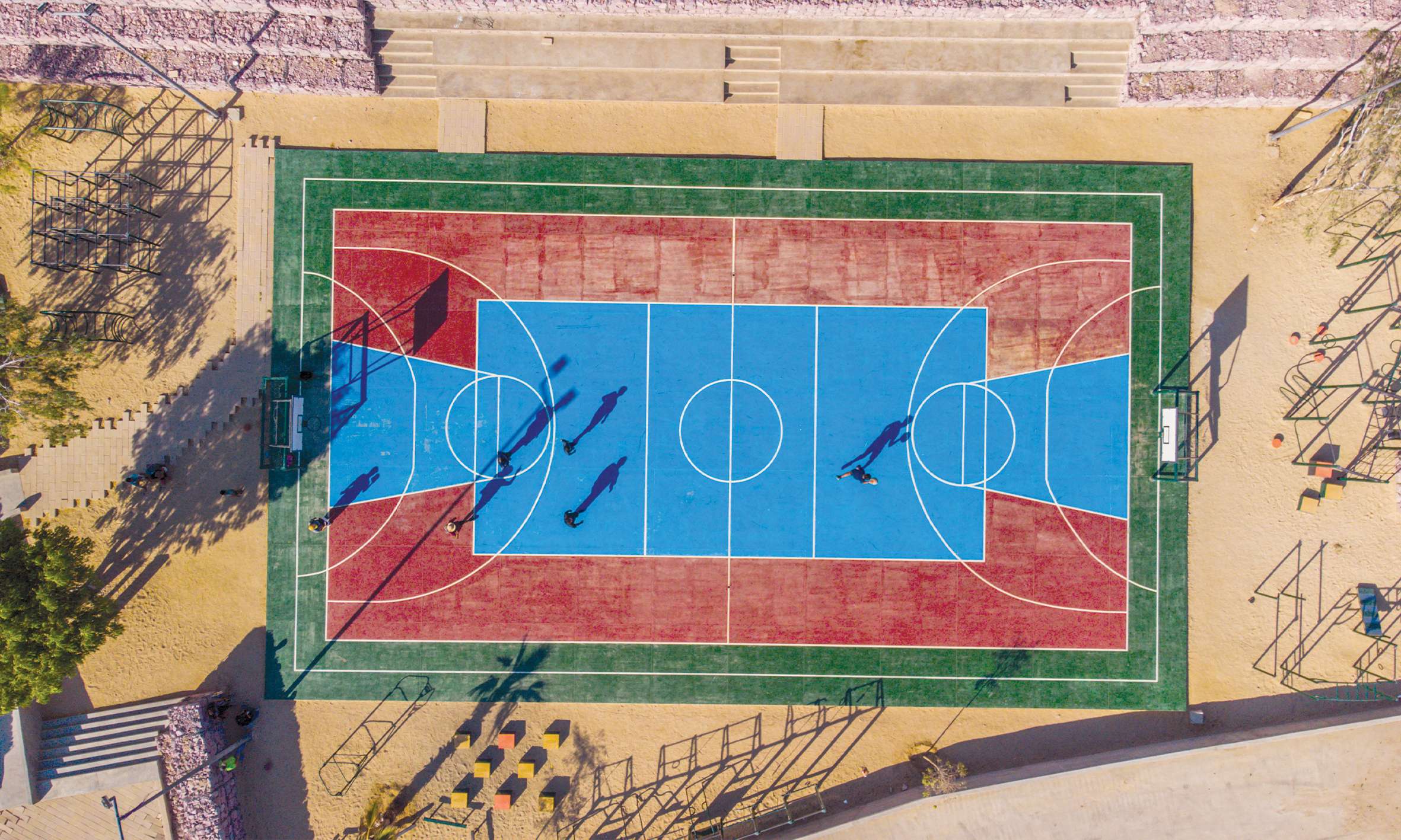
Jardín de Agua
Jardí d'Aigua
Water Garden
The Water Garden project forms part of the National Urban Improvement Program of SEDATU developed in collaboration with Facultad de Arquitectura, UNAM, to provide quality spaces for low-income neighborhoods with low-budget interventions. The design of the public space is very low cost and low maintenance. The project is in a marginalized area north of Los Cabos, Baja California Sur, the most arid state and the most stricken by direct impacts from hurricanes and tropical storms in Mexico. We conceived the project as a resilient public infrastructure in an urban context of extreme heat and floods. It reclaims an abandoned space adjacent to a landfill and a junkyard and transforms the site into a public park. Recreational and sports facilities provide a multifunctional space designed to be adapted to a shelter when disasters occur. The landscape strategy includes native and xerophytic vegetation, which contributes to protection from radiation, mitigates the heat island effect and increases comfort while reinforcing the local landscape identity. The project includes a vegetated area in a desert climate without taxing the local water supply. Rainwater from the roof structure is stored in an underground cistern to be used in restrooms, irrigation, and storage. The prefabricated modular metal structure is a shade element that is freely programmable and can accommodate multiple activities. It allows fast construction, low maintenance, high-quality control, dimensional precision, and durability. The Water Garden project channels water to a terraced bioretention system that slows down, infiltrates and manages runoff water to avoid and mitigate floods downstream. Several school facilities in the area are used as shelters in case of disaster; this project represents support infrastructure when facing emergencies. The Water Garden improves the neighborhood's image, generates public space, promotes a local landscape identity, and fosters neighbors' safety in the area.
